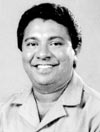
US Senate turns against Lanka
It is a week where security considerations overshadowed political events. That is both in Sri Lanka and abroad. Main among them was the hitherto unpublicised vote in the United States Senate on September 6 approving the State Department Appropriations. Section 690 of the document said: "None of the funds appropriated by this Act under the heading 'Foreign Military Financing Programme' may be made available for assistance for Sri Lanka, no defence export license may be issued, and no military equipment or technology shall be sold or transferred to Sri Lanka pursuant to the authorities contained in this Act or any other Act, unless the Secretary of State certifies and reports to the Committees on Appropriations that - (1) the Sri Lankan military is suspending and the Sri Lankan Government is bringing to justice members of the military who have been credibly alleged to have committed gross violations of human rights, including extrajudicial executions and the recruitment of child soldiers; (2) the Sri Lankan Government has agreed to the establishment of a field presence of the Office of the United Nations High Commissioner for Human Rights in Sri Lanka. The passage of this provision was the result of an amendment moved by Senator Patrick Leahy. However, the amendment will become law only after the Act receives the assent of the President of the United States, George W. Bush. Sections of the Bush administration are of the view that the President may overrule the provision. That remains to be seen.
But if it does become law, there will be no US aid to buy non lethal equipment as we have been doing so far. There will be no radars, fire finders, night vision equipment and the like. Nor will there be Coast Guard cutters, spares for C-130 Hercules transport planes and for Bell helicopters. The proposed law also contains other references to Sri Lanka less onerous, but a first. According to reports from Washington, differences between the US House of Representatives version and the Senate version of the State Department Appropriations have been agreed upon. This is during a Senate-House conference. If it does become law in the United States, the Leahy Amendment would be a major blow to the Mahinda Rajapaksa administration. Since the tenure of the then Prime Minister, Ranil Wickremesinghe, military co-operation between the United States and Sri Lanka grew considerably. Following Wickremesinghe's meeting with President Bush, the US Government sent a high-level team from the US Pacific Command in Hawaii to carry out a detailed assessment of the Sri Lankan Security Forces. They identified the strengths and drawbacks in a voluminous report. In the wake of it, US military co-operation grew considerably. The fact that it would come to a complete halt if the Leahy Amendment becomes law is a major blow to Sri Lanka. More so when more military co-operation would have been forthcoming with the ongoing US war on terror. In recent years, the US has intensified its so-called war on terror in Iraq, Afghanistan and elsewhere, while Pakistan has been warned the US will launch unilateral strikes if the Musharraf government does not take tough action against terrorists operating on the Pakistan-Afghanistan border. Even as far back as last week, a US Air Force team was in Sri Lanka conducting joint medical clinics. Does it mean the end of such joint events when the amendment becomes law? These were concerns that came despite the two countries recently signing an Acquisition and Cross-Servicing Agreement (ACSA). That news came against the backdrop of another politico military faux-pas. Last week, an official Government statement declared that an "Indo-Lanka Committee of high officials on defence related matters was established following the visit of a high level delegation of officials to New Delhi." The reference is to the three-member team visiting New Delhi. It comprised Lalith Weeratunga, Secretary to the President, Gotabhaya Rajapaksa, Defence Secretary, and Basil Rajapaksa, Senior Advisor to the President. In this political commentary last week, we noted that the highlight of the visit was two fold. One was to apprise the Indian authorities of the Government efforts to formulate political proposals to end the ethnic conflict at the earliest opportunity. In a bid to allay Indian concerns, the Government had on two occasions set its own time frame but the task before the All Party Representative Conference (APRC) could not be concluded. The other highlight was to apprise the Indian authorities of the crackdown on Tiger guerrillas in the north. This is agaisnt the backdrop of Government claims that the entirety of the East has now been re-captured. The Government statement, attributed to diplomatic sources, claimed that the appointment of the Committee was "the outcome of the discussions the Sri Lankan delegation held with the their counterparts in New Delhi on September 3 - 4." It added: "The composition of the Committee is as follows: Secretary to the President, Lalith Weeratunga, Defence Secretary Gotabhaya Rajapaksa and Senior Advisor to the President Basil Rajapaksa (Sri Lanka) and Defence Secretary Shri Vijay Singh, External Affairs Secretary Shivshankar Menon and National Security Advisor M.K. Narayanan (India). The official statement was to cause ripples of anger in both the Indian political and defence establishments. One angry External Affairs Ministry official was livid that the Government of Sri Lanka was making an attempt to portray that they have won India on board for their military campaign. This was whilst India strongly believed that a settlement to the ethnic conflict could not be carried through military offensives but through a negotiated political process. Thus, official spokesmen responded to media queries with a firm denial and assertions that the formation of no such Committee was ever discussed leave alone being formed. Was it also another one of those "official plants" aimed at creating the impression that India was backing every move of the Rajapaksa Administration? If that was what was intended, it boomeranged badly and ended up in a diplomatic slap in the face for Sri Lanka. A senior Foreign Ministry official remarked that this is what happens when the Ministry is by-passed on diplomatic matters. Whilst issuing official denials, New Delhi urged the Government of Sri Lanka through diplomatic channels to immediately retract the official news report. It was a tough "no nonsense" message, said one source. The result was a three paragraph statement from the PRIU (Presidential Research and Information Unit). It said, "The PRIU is informed that there was no decision among those who participated in these discussions to establish an Indo-Lanka High Level Committee on defence as stated in our report, which was based on an incorrect interpretation of information on this matter. ……" It was not a case of the local media making a mistake. So, the Government retraction, though unwittingly, made another glaring if not serious admission - that there were officials within the Government who were making incorrect interpretations on vital matters relating to Indo-Sri Lanka relations. One need hardly say how damaging this is, when India is not only Sri Lanka's neighbour but an integral and important factor in Sri Lanka's foreign policy objectives. On the domestic political front, the United National Party (UNP) , Sri Lanka Freedom Party (SLFP-M) combine of the National Congress had its first rally in the Eastern Province - at Dehiattakandiya near Ampara last evening. Opposition UNP Leader Ranil Wickremesinghe got up at 5.30 last morning to make the seven-hour journey across the country. He was held up in Colombo the previous night to attend a wedding of long-time family friends. SLFP (M) leader Mangala Samaraweera went the previous day. Wickremesinghe was in his now aggressive mood once again calling upon the people to rally round the National Congress to protect the sovereignty of the people against what he calls the Rajapaksa Samagama - Rajapaksa Incorporated. He announced that they were launching their non-violent direct action agitation campaign for which they had got the nod from their special convention last Sunday at Getembe, Kandy from today under the banner Dukha Nivana Aragala - Campaign against Suffering, At the rain-soaked special convention, UNP's joint National Organiser S.B. Dissanayake re-appeared after a long absence from both country, and party activities with the National Congress. His arrival on stage was greeted with fire-crackers, and he was unable to speak for two minutes till the celebrations ended. None of the other speakers, including party leader Wickremesinghe, Chairman Rukman Senanayake or party secretary Tissa Attanayake, who is from Kandy, had such a rousing welcome. S.B. Dissanayake was quickly accused of being the 'brains' behind the move, but he was keen to dispel the rumours and plead ignorance. To make amends for his absence from meetings ever since the Hyde Park rally in Colombo in August, Dissanayake stamped his feet on the stage while emphasising the point that the Rajapaksa administration "kudu karanna onne" - must be crushed. Of equal political significance was the Supreme Court case on the teachers strike. Five trade unions, one of which is controlled by the Janatha Vimukthi Peramuna (JVP) decided to take up cudgels with the Government over salary anomalies. They began by going slow on the marking of Advanced Level examination papers, at which point a petitioner from Anuradhapura, a student, having retained a senior-most President's Counsel, Faiz Musthapa came before the Supreme Court and asked that his marking papers be attended to. The matter was supported in Court the Friday before, and notice had been issued on the five unions, with an interim order made asking the teachers to carry on with the marking and for the Inspector General of Police to ensure there was no obstruction of such marking. In the meantime, however, the unions wrote a letter to the Secretary of the Education Ministry announcing the launch of a token-strike from the 13th (last Thursday). This caused the situation to get aggravated. The Supreme Court took up the matter the next day (14th- Friday) and went hell for leather against the union leaders for contempt of court. The bench headed by Chief Justice Sarath Silva was in a mood to lock up the union leaders, but resisted the move and said they could go home instead on bail. Four of the five unions opted to court arrest, and be thrown into jail, and be martyrs. The fifth union, the JVP backed one, however, opted not to take that route. Their lawyer was to dissuade the firebrand unionists from time in prison by saying openly "ada nidahas venna onne" they must be free today. His argument being that they should live to fight another day. But others, especially in the Opposition saw this as a move by the JVP to run with the hare and hunt with the hound. Rs. 50,000 was the bail charges for each of the five union leaders, which was promptly coughed up by the JVP's National Trade Union Council, but when the unionists then agreed to opting for bail, three Principals from National Schools viz., Royal College, Ananda College and Mahanama College turned up with the required cash in hand. Thus was averted what might have sparked off to be a major political issue in the country. The markings now are in progress, and the Police kept in readiness for any obstructionist unionists trying to prevent the teachers from carrying out what the Supreme Court has ordered. Taking a cue are now the Ceylon Electricity Board (CEB) employees, also threatening union action for higher wages and their other demands. These back-to-back strikes are bound to have knock-on impacts on the Government, and how many times the intervention of the Supreme Court has to be revoked to settle these burning issues in the country, is to be seen. Again in Court, the UNP won a rare victory last Friday when they were awarded interim relief when the High Court stopped the breakaway UNP (D) members from publishing the nava Siyarata, when the name of the UNP's official organ is called the Siyarata. UNP (D) members were taken by surprise when a senior attorney who has appeared for them previously on a separate issue against the mainstream UNP was to appear for the Ranil Wickremesinghe led UNP. The case was filed making UNP (D) spokesman R.A.D. Sirisena, MP the Defendant, but the Party hierarchy believed the man behind the exercise was Tourism Minister Milinda Moragoda to whom Wickremesinghe had given a special licence for the year 2005 to print the Siyarata, when Moragoda was an erstwhile lieutenant of Wickremesinghe. The UNP (D) was reportedly getting concerned that double-dealers were in the camp of the double-crossers, with information leaking out to the mainstream UNP about their activities. Otherwise, how, they asked themselves, did information about some 100,000 posters printed just before a court order was to be given in their favour come to be known by Siri Kotha, the UNP headquarters, and similarly the case that their P. Dayaratne was to file about the special convention, and now the publication of the nava Siyarata. |
|| Front
Page | News | Editorial | Columns | Sports | Plus | Financial
Times | International | Mirror | TV
Times | Funday
Times || |
| |
Reproduction of articles permitted when used without any alterations to contents and the source. |
© Copyright
2007 Wijeya
Newspapers Ltd.Colombo. Sri Lanka. All Rights Reserved. |


